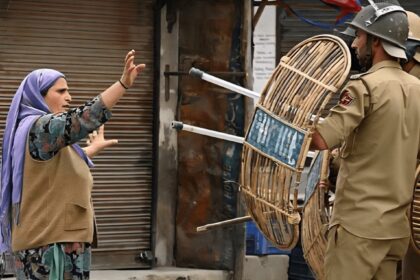Today, I woke up in the morning after sleeping for seven hours and still felt tired. My head hurt a little, and even the slightest noise outside made me uncomfortable. Before I could open my eyes, my brain started making a list of things lined up for me for the day: text friends about the hospital wards, make iftar food, complete my writing and email it, prepare for the OSCE exam, exercise or at least walk for an hour, go to the tailor, take out the summer clothes, fold the winter clothes—do I have time for a quick shower? But wait, when was the last time I showered? Reply to your friend whose text has been lying unread for a month, decorate the lounge for Ramadan, complete the tafseer lecture—just do not let your work pile up.
What Hustle Normally Looks Like
I am sure this is how many people wake up. Dreadful Mondays have become the start of the grind, Wednesdays are somehow the longest workdays of the week, Fridays are just too short to enjoy, and on weekends, when we are not working in the office, we are working for the office from our homes. When we are not in universities attending classes, we are completing our assignments. When we are not in hospitals, we are still reading X-rays and CT scans of patients on our WhatsApp.

I do understand the concept of financial independence and the saying an idle mind is the devil’s playground, but some days, I ask myself: Have we taken this notion too seriously? Have I transitioned from a human who breathed fully, ate slowly, slept well, and just lived in the moment into a robot that only operates on an on/off switch? Is this hustle culture and boss-lady mindset something we have heedlessly adopted from social media? Are we always aiming for what’s next, what’s better, without giving regard to what actually exists in the present moment?
Why Am I Hustling?

I remember when I was little, my favorite time of the year was summer vacation. I had just finished my one-month-long final exams, and those holidays somehow felt like walking on a beach (though I have never been to a beach). I used to wake up, and that was it. What would I do? How would I do it? Nothing occupied my mind. It was just me, good food, sleep, endless episodes of MasterChef Australia and Hannah Montana on cable, and Agatha Christie novels for the entire months of June through August. Now, when I think about that time, I am not even sure if I truly lived it. Life was so simple and fun.
I don’t know when I entered into the race of I am never enough. The idea of sitting down and doing nothing for a while just scares me. It feels as if something will go wrong, I will not be able to get what I want, people will think I am a slacker, or I may become a chronic lazy pants, good for nothing. These thoughts—rather, fears—keep me on my toes and ultimately lead to burnout. I am not sure if this happens to other people too, but whatever keeps them working 24/7 without regard for their health is mostly fear, not a healthy source of motivation.
Is It OK to Stop?

However, recently, I have given my lifestyle some thought, and I have come to the conclusion that while growing up and adulting are natural phenomena of life, slowing down once in a while is also necessary. Muhammad (PBUH) used to go to the Cave of Hira every now and then to meditate and be away from the world for some time. It did not hinder his growth or purpose; in fact, it energized him spiritually and mentally to move ahead.
Humans are created for a purpose, but they are not designed to work endlessly day and night to prove their worth. I know that FOMO is real, the fear of becoming lazy is real, anxiety about the future is real, and over-productivity is real. However, I will try my best to understand my fears, accept them, and let them go. As much as being part of a Fortune 500 company sounds great, I do not think, at this point, that I want to give away my peace, mental health, and physical well-being to enjoy luxuries that my heart will not find tranquility in.
















